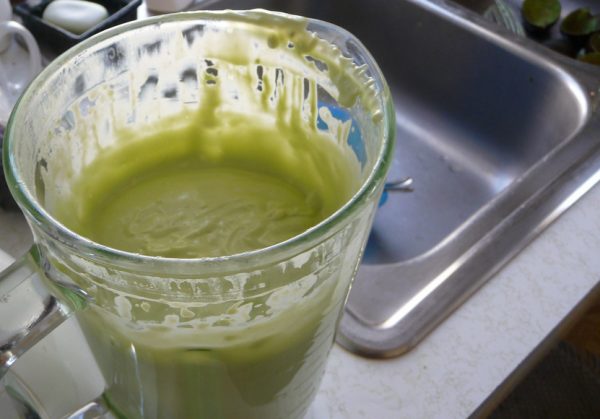How Food Changes When You’re a Caretaker

Photo credit: Rex Roof, CC BY 2.0.
My grandmother had a stroke a month-and-a-half ago, and I have been her primary caretaker ever since.
My list of terrible things about a loved one having a stroke is already clocking in at a monologue of 45 minutes, or whenever I get exhausted from the spiraling thoughts. For the purposes of this conversation, I’ll focus my thought spiral on food.
I didn’t think far enough ahead the first few weeks to realize that meal prep and planning was going to be a whole different endeavor, post medical crisis. It is now an essential, daily task in this new reality — and this task falls entirely to me.
Nutrition, once you’ve had a stroke, can be very tricky. A high percentage of people recovering from stroke have dysphagia, which makes swallowing very difficult. You would think that this means you’d have to do liquid everything, but it’s actually the opposite — every liquid has to be thickened, and food has to be pureed as part of her diet plan. I watch for delayed swallows and fear silent aspiration. I track bowel movements and their specifics, in case there’s too much fiber, not enough, or just enough for me to realize that I am overthinking this.
When a family member has a stroke and their swallowing abilities are impaired, their loved ones are introduced to pureeing equipment that used to be used only for smoothies, as well as recipes in which Hormel thickener powders are a default ingredient. You learn these new recipes, adjusting for the fact that you shouldn’t serve chicken at every meal, and often end up eating the same food as your grandma — not only because you still haven’t gotten the hang of serving sizes, but also because it’s natural to get hungry as you help someone else eat.
Every Friday dinner has been a scheduled reward meal for myself: a bento box, a pad Thai, something that wouldn’t be out of place on an episode of Sex and the City. The budgeting piece of this new food regime was the last thing on my mind, but it will be something I have to deal with as we continue looking for personal aide assistants and a more sustainable plan than my burning through my vacation days. Health crises don’t let you take a breath, and I am slowly putting together the pieces of a plan to get some balance back into both my life and my finances — while also making sure my grandma has what she needs.
COSTS ACCRUED, MONTH 1.5
- Oster Versa Pro series blender to puree and smoothie all foods: $170
- Hormel thickening powder: $21
- Ensure Chocolate Shakes and Puddings: $20 for a dozen puddings, $20 for a pack of 16 shakes
- Failed recipes for pureed foods, three trials: $15
- 18 days of sick and vacation leave: sunk costs
J.M.P. is still coming to terms with being a caretaker — of others, and of herself. She has newfound respect for the amount of patience that health breakdowns force you to learn.
This story is part of The Billfold’s Food Series.
Support The Billfold
The Billfold continues to exist thanks to support from our readers. Help us continue to do our work by making a monthly pledge on Patreon or a one-time-only contribution through PayPal.
Comments